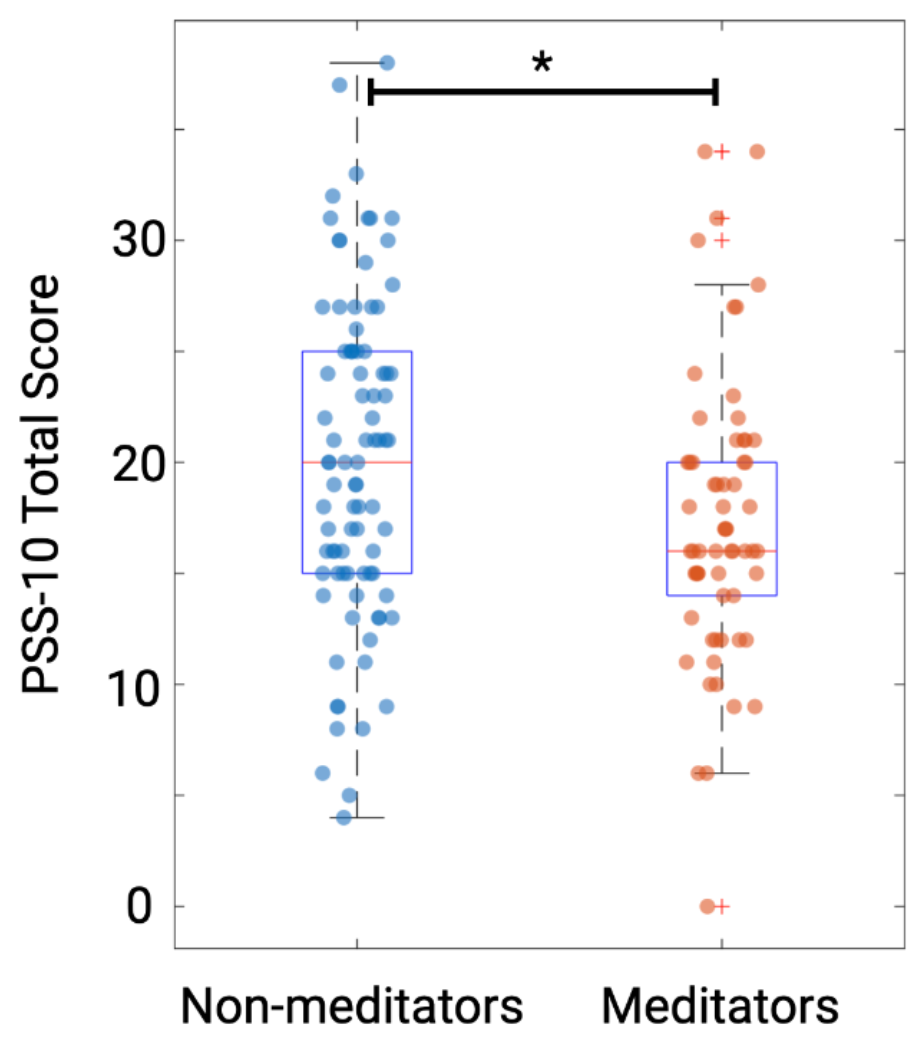Abstract
Background: The COVID-19 pandemic significantly impacted mental health worldwide, particularly among college students. This study aimed to evaluate the effects of regular meditation practice on stress and well-being during the COVID-19 lockdown in college students from Delhi, India.
Methods: Data were collected from April 22 to June 3, 2020. Participants included college students aged 18–26, divided into two groups: those with regular meditation practice and those without prior meditation experience. Stress levels were measured using the Perceived Stress Scale (PSS-10). Statistical analyses included group comparisons and regression models to examine the relationship between meditation frequency, duration, and stress levels.
Results: Compared to the meditation-naive group, participants in the meditation group reported significantly fewer adverse effects of the lockdown on their mental and emotional well-being. Stress levels were lower in the meditation group, and both the frequency and duration of meditation sessions were inversely associated with stress.
Conclusions: Regular meditation practice appears to mitigate the negative impact of lockdown on mental health, reducing stress and promoting emotional well-being. These findings underscore the potential of meditation as an accessible, effective tool for stress management, particularly in challenging contexts such as the COVID-19 pandemic.
